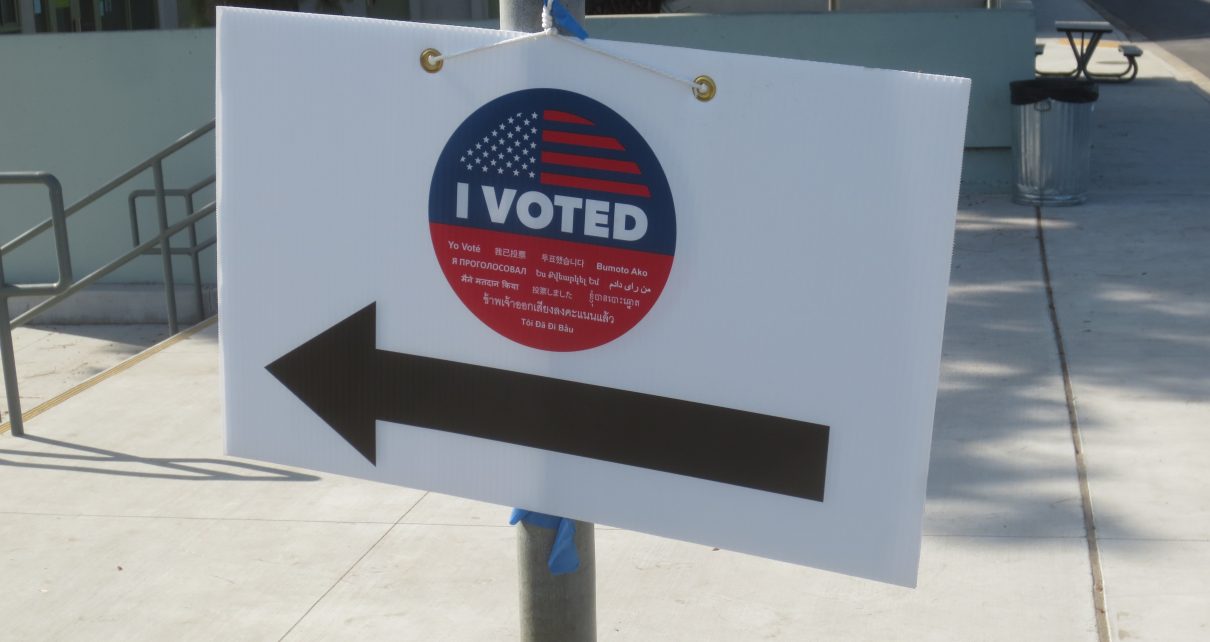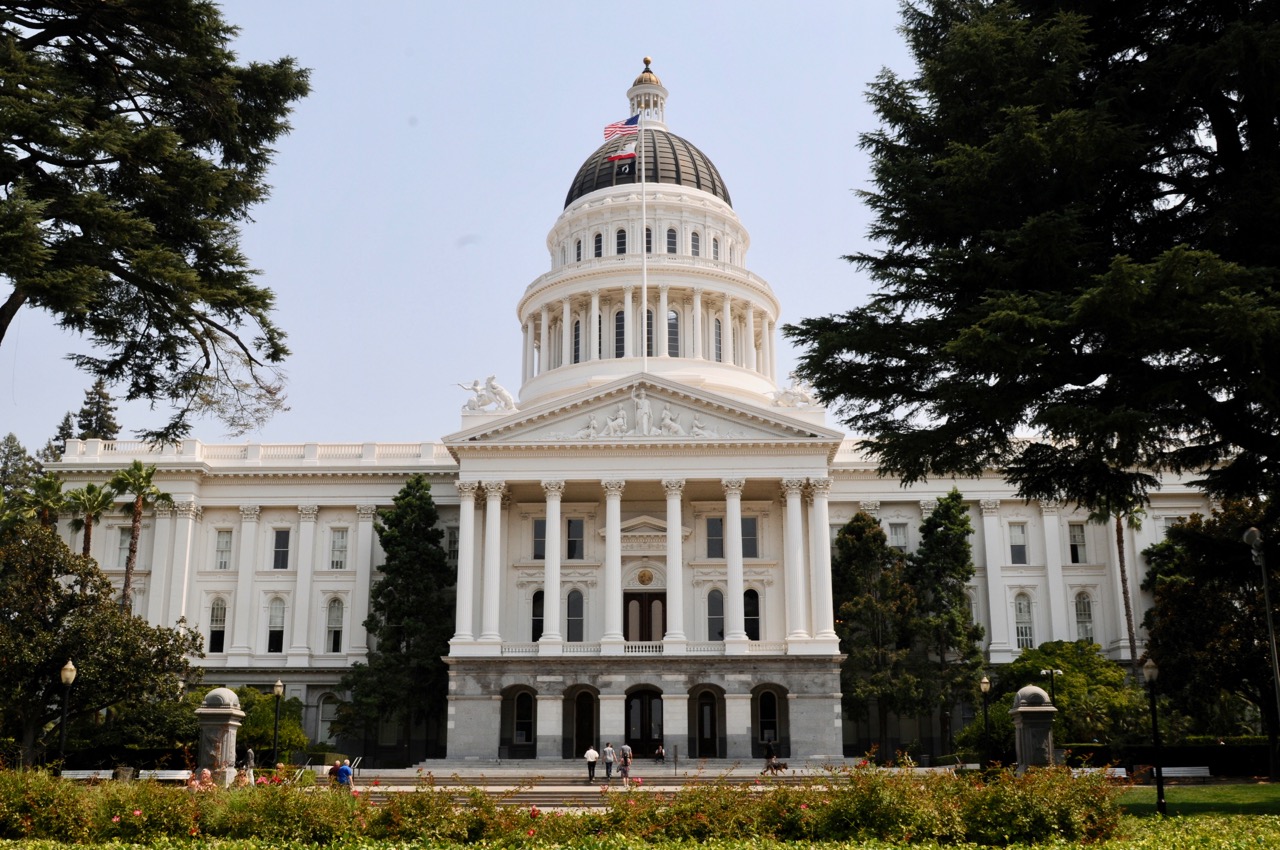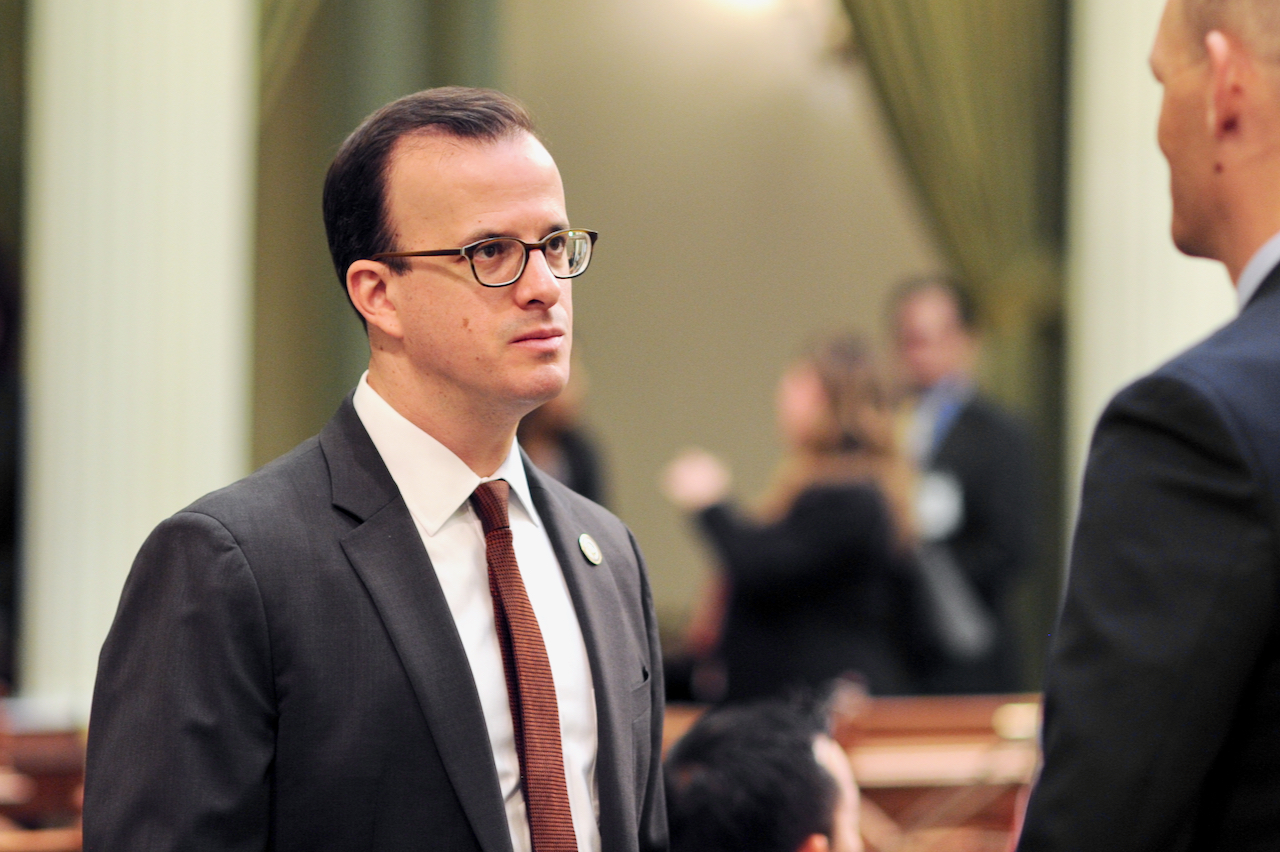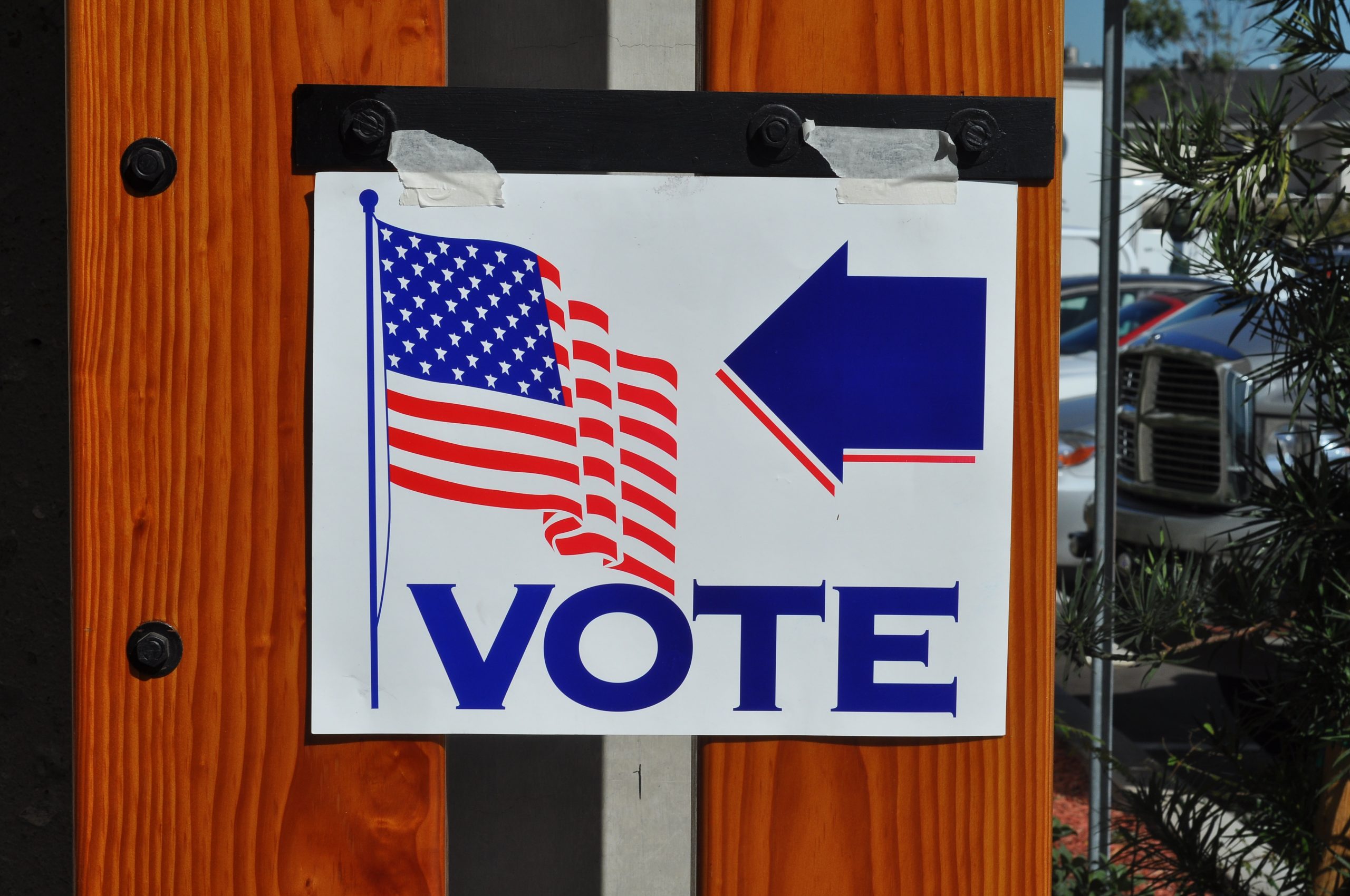
Voting sign in Pasadena, CA November 3, 2020 (Photo: Evan Symon for the California Globe)
The Voter Bill of Rights
All voters must be citizens of the United States
By Chris Micheli, January 9, 2022 6:46 pm
In California statute, there is a “Voter Bill of Rights.” It is contained in the Elections Code, in Division 2 (Voters), Chapter 5, which includes Sections 2300 – 2302. Chapter 5 was added in 2003 by Chapter 425. What is included in the Voter Bill of Rights contained in Elections Code Section 2300?
First, all voters must be citizens of the United States.
Second, the Voter Bill of Rights must be available to the public.
Third, the Voter Bill of Rights must convey the following to voters:
- You have the right to cast a ballot if you are a valid registered voter.
- A valid registered voter means a United States citizen who is a resident in this state, who is at least 18 years of age and not serving a state or federal prison term for conviction of a felony, and who is registered to vote at their current residence address.
- You have the right to cast a provisional ballot if your name is not listed on the voting rolls.
- You have the right to cast a ballot if you are present and in line at the polling place before the close of the polls.
- You have the right to cast a secret ballot free from intimidation.
- You have the right to receive a new ballot if, before casting your ballot, you believe you made a mistake.
- If at any time before you finally cast your ballot, you feel you have made a mistake, you have the right to exchange the spoiled ballot for a new ballot. Vote by mail voters may also request and receive a new ballot if they return their spoiled ballot to an elections official before the closing of the polls.
- You have the right to receive assistance in casting your ballot, if you are unable to vote without assistance.
- You have the right to return a completed vote by mail ballot to any precinct in the county.
- You have the right to election materials in another language, if there are sufficient residents in your precinct to warrant production.
- You have the right to ask questions about election procedures and observe the election process.
- You have the right to ask questions of the precinct board and elections officials regarding election procedures and to receive an answer or be directed to the appropriate official for an answer. However, if persistent questioning disrupts the execution of their duties, the precinct board or elections officials may discontinue responding to questions.
- You have the right to report any illegal or fraudulent activity to a local elections official or to the Secretary of State’s office.
Fourth, beneath the Voter Bill of Rights there must be listed a toll-free telephone number to call if a person has been denied a voting right or to report election fraud or misconduct.
Fifth, the Secretary of State may develop regulations to implement and clarify the Voter Bill of Rights, as well as revise the wording of the Voter Bill of Rights as necessary to ensure the use of clear and concise language free from technical terms.
Sixth, the Voter Bill of Rights must be made available to the public before each election and on election day, at a minimum, as follows:
- The Voter Bill of Rights must be printed in the state voter information guide in a minimum of 12-point type.
- Posters or other printed materials containing the Voter Bill of Rights must be included in precinct supplies.
In addition, Elections Code Section 2301 specified that an international election observer may be provided uniform and nondiscriminatory access to all stages of the election process that are open to the public. This access can include:
- Public review period for the certification of a ballot marking system.
- Processing and counting of vote by mail ballots.
- Canvassing of ballots.
- Recounting of ballots.
However, an international election observer cannot interfere with a voter in the preparation or casting of the voter’s ballot, with a precinct board member or an elections official in the performance of his or her duties, or with the orderly conduct of an election.
Who are these individuals? An “international election observer” means a person who witnesses the administration of an election in this state and who is an official representative of an international organization such as the United Nations, the Organization for Security and Cooperation in Europe, or the Organization of American States.
Finally, Elections Code Section 2302 states that a voter or any other person cannot be prohibited from using an electronic device, including a smartphone, tablet, or other handheld device, at a polling place provided that the use of the device does not violate other Elections Code provisions.
- Frequently Asked Questions about State Agency Ethics Training - April 26, 2024
- Frequently Asked Questions about When Elected Officials Take Office - April 25, 2024
- Frequently Asked Questions About Ethics Training for Local Agencies - April 24, 2024





Thank you very much for this (and all the other important information), Chris Micheli and California Globe.
“It is enough that the people know there was an election.” J. Stalin
https://www.eip-ca.com/The-Golden-State-Agenda.pdf